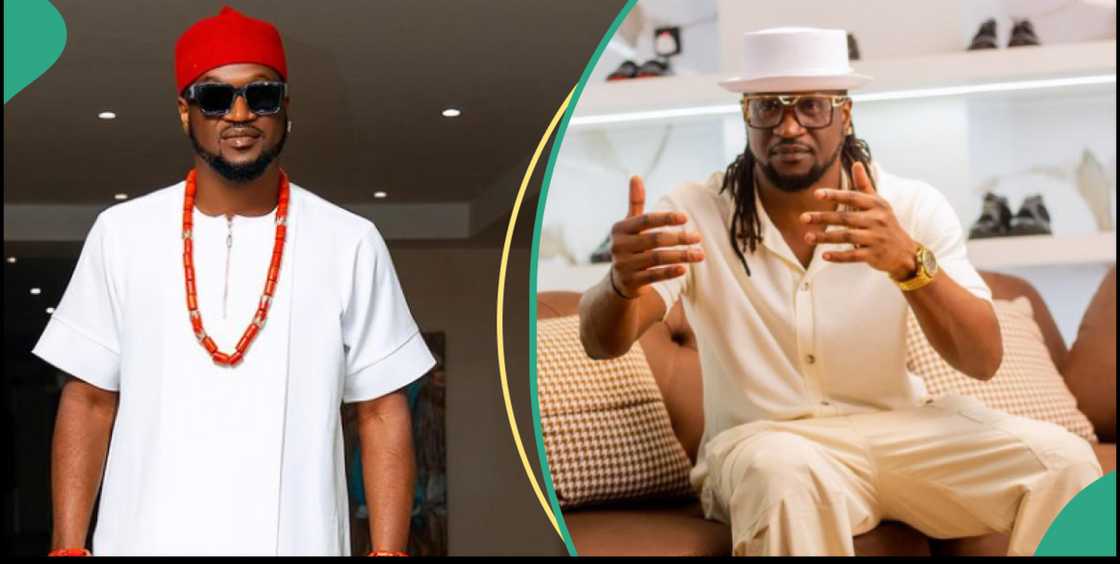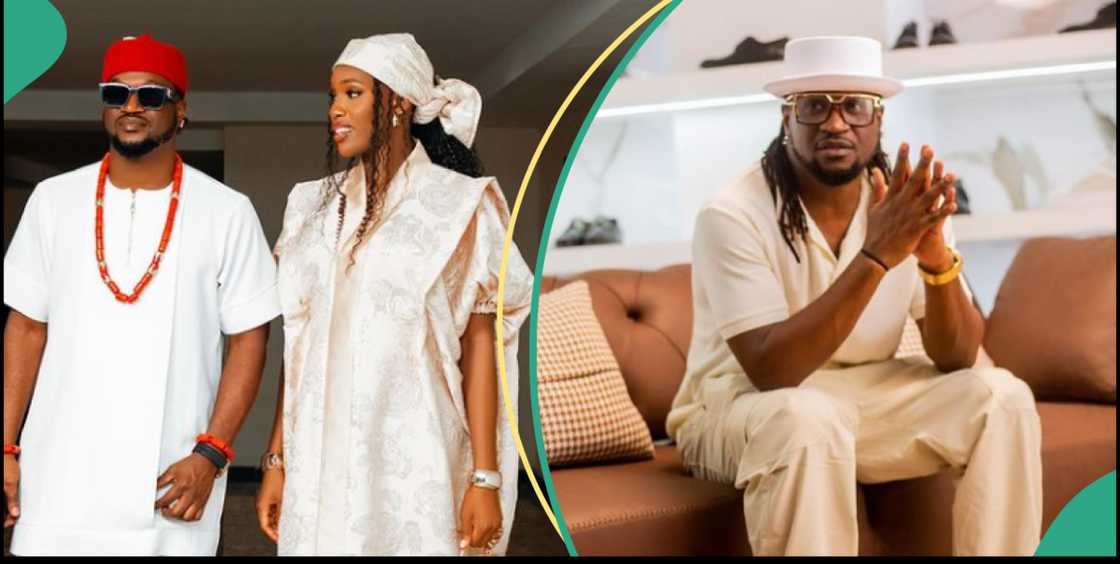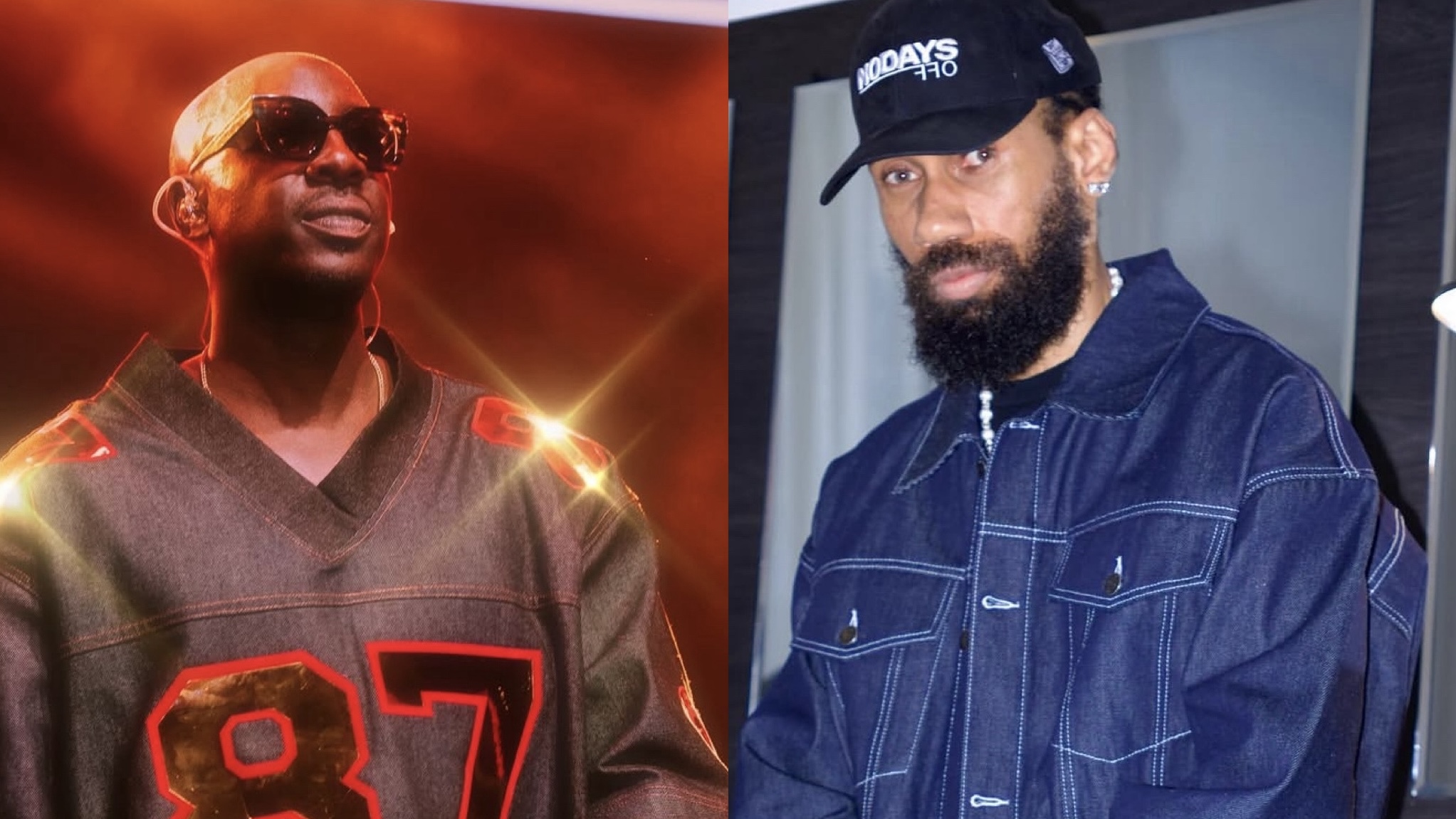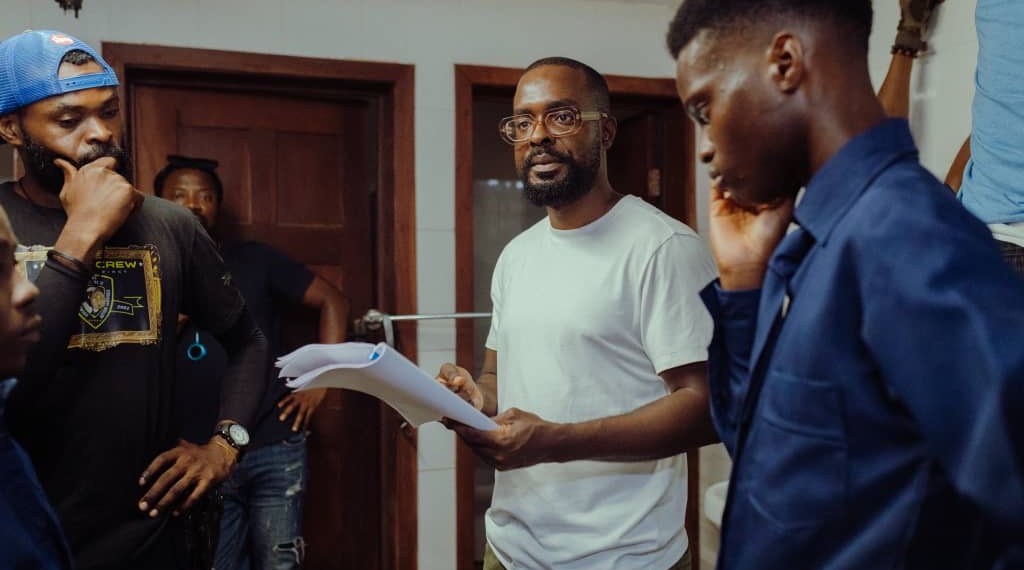Nigerian music star Paul Okoye, widely recognized by his stage name Rudeboy, recently set social media abuzz after publishing a candid message directed at women. The singer’s statement has ignited vibrant discussions about modern relationship dynamics, particularly in the context of financial support between partners—a subject that resonates keenly within Nigeria’s evolving cultural landscape.
On his Instagram story, Rudeboy opened up about his perspective on how financial roles should be shared within romantic relationships. According to the artist, it’s not only acceptable but honorable for women to lend financial help to their male partners, especially during times of need or when the situation calls for joint responsibility. He suggested that such gestures reflect not weakness, but mutual strength and partnership—qualities he said are pivotal for building a healthy, modern relationship.
Rudeboy further emphasized that when a woman contributes financially, it serves as a powerful symbol of support and equality within the relationship. He described this act as a “significant gesture,” one that helps create balance, boosts value on both sides, and fosters a fairer partnership dynamic. His message, though brief, tapped deeply into longstanding conversations about gender expectations in Nigeria and across much of West Africa.
https://www.instagram.com/iamkingrudy/?hl=en
wrote:
“I know men are meant to do everything — responsibilities and all — but the biggest flex is when your woman once in a while, in a blue moon, takes care of some certain things… that’s a massive FLEX…”
See his
https://www.instagram.com/p/DOsUoheDPJ3/?img_index=2
:
Public Reactions: Social Media Erupts Over Rudeboy’s Message
As soon as Rudeboy’s post circulated, it drew diverse reactions from his audience. Fans, media personalities, and social commentators rushed to add their voices to the conversation, with some interpreting his comments as subtle shade at his second wife, Ifeoma Ivy. Others saw it as a prompt for societal reflection, urging men and women alike to review it through the lens of Nigerian traditions and modern values.
Below is a selection of notable online responses:
uchemaduagwu said:
“But your Ex did all that so why you leave her?”
toptier_man said:
“Social media is different from reality.. real life most women are spending money on men, supporting men doing things for men but everybody dey form work online. I really don’t take social media rants serious cos it’s different in real life.”
sayojone said:
“Do we really have any woman that doesn’t work or support their family??”
princess_starrrrrrrrrr said:
“He’s indirectly passing the message to his wife. All these married people self 😂.”
demo_pumpin said:
“I for correct him English but dem say dem no dey correct rich people.”
yemisipj said:
“2nd wife don dey hustle pass 1st wife 🥴.”
nelly_7358 said:
“Something your ex wife was doing 😂😂😂why’s this one now special?? We no send una for here jare.”
official_ebube said:
“Na from once in a while my mama own turn to lifetime. It’s well o.
viiince_kg said:
“Took me 7yrs to read and understand Rudeboy’s write up. Head ache nearly kee me! 😩😩 but I don get ham! 😂.”
udychime said:
“Some men no go still appreciate am!”
mamah_gift said:
“Uche maduagwu said but his wife did all that so why did he leave her😭😭😹😹😹😹 wo! Don’t throw stones when you live in a glass house o😹😹.”
ayam.sparks said:
“For the small girl wey you leave your wife marry so? 😂”
mischinny said:
“😂😂😂😂😂😂😂 A man carrying a baby in his womb occasionally is d bigger flex sha.”
victoria_nengi said:
“I love Nigerian comment section sha😂.”

Credit: @iamkingrudy
Source: Instagram
Why Rudeboy’s Message Resonates With Nigerian and African Audiences
Nigeria, like many African societies, has traditionally placed the bulk of financial obligations on men, especially within marriages or long-term partnerships. However, as more women enter the workforce and become financially independent, societal expectations around money in relationships have begun to shift. Rudeboy’s statement plays into this broader conversation, challenging the idea that only men must provide while inviting women to see their contribution as strengthening—not undermining—a relationship.
For many West Africans, this debate hits close to home, with young couples and older generations offering varying perspectives. “In modern Nigerian society, the ability of women to contribute financially is seen as empowering and necessary, considering today’s economic realities,” observed Dr. Adebayo Idowu, a Lagos-based sociologist. “But there are still pockets of resistance, often rooted in cultural beliefs about gender roles.”
Comparisons to Global Relationship Trends
Globally, similar discussions are taking place, with couples across Europe, North America, and other parts of Africa negotiating new forms of partnership and financial responsibility. However, in the Nigerian context—where the extended family system, bride price traditions, and multigenerational households all have influence—the conversation takes on unique contours. Some local commentators have called for more open dialogue between couples, while others urge respect for each household’s approach to financial management.
Notably, a 2022 survey by the Nigerian Bureau of Statistics found that over 37% of urban Nigerian households report shared financial decision-making, while 50% still expect men to be the primary providers. This data highlights Nigeria’s mixed, transitional approach—a factor that likely contributed to the lively debate following Rudeboy’s viral post.
Potential Ripple Effects: Social Media as a Barometer for Change
Social platforms like Instagram and Twitter have fast become critical spaces for Nigerians to air their opinions and challenge long-held traditions. Influential voices, such as Rudeboy’s, can set trends, steer debates, or even change minds, especially among youth and urban dwellers. The conversation ignited by his post may well inspire more couples to discuss and negotiate their own financial roles—possibly accelerating ongoing cultural change.
Yet as many commentators pointed out, it’s essential to recognize that each relationship is unique. What works for one couple may not suit another—a sentiment echoed by marriage counselors and relationship experts interviewed by NowahalaZone. They encourage couples to communicate openly, be transparent about expectations, and decide together how to share financial burdens.
Legal Troubles Shadow the Okoye Family
While the relationship debate was raging online, Paul Okoye’s brother Jude Okoye has been in the news for other reasons. According to multiple reports and court filings, Jude is currently facing a significant legal challenge after the Economic and Financial Crimes Commission (EFCC) charged him with involvement in the alleged laundering of N850 million linked to a property in Ikoyi, Lagos. The EFCC alleges that Jude acquired this high-value property through means suspected to be unlawful and has filed a seven-count indictment.
The unfolding case has generated intense scrutiny—not just of Jude, but also of the Okoye family. According to some social media speculators, both Jude and Paul have been seen standing together during this period, prompting chatter about possible rifts or alliances within the widely known Okoye brothers, including Peter (Mr. P). It’s worth noting that, as of this report, the EFCC’s allegations have not resulted in a conviction, and Jude Okoye continues to maintain his innocence, as detailed in official press releases.
Family Unity and Public Perception
Family dynamics within the Okoye household have long fascinated fans, thanks to the brothers’ success with the famous P-Square duo and their later solo careers. While allegations and high-profile disputes sometimes draw public attention, the family remains a symbol of resilience and adaptation in Nigeria’s entertainment industry. Local observers note that public highs and lows often mirror challenges faced by many Nigerian families navigating fame, business, and tradition.
What Next for Relationship Expectations in Nigeria?
As the conversation sparked by Rudeboy’s Instagram statement continues, many Nigerians are left reconsidering not only their own relationships but what it means to work as true partners. Will these discussions encourage more couples to break from rigid, gender-based expectations? Or will tradition prevail as economic pressures and social values collide?
Whatever your opinion, one thing is clear: Nigerian and West African couples are redefining partnership in real time, seeking both modernity and cultural balance.
What’s your take on this growing debate about money, partnership, and equality in today’s relationships? Have you witnessed or experienced changing expectations among couples in Nigeria, Ghana, or elsewhere in Africa? Drop your thoughts in the comments and join the conversation on our social media platforms!
For support or further inquiries, contact us at support@nowahalazone.com.
Follow us for updates, conversations, and more Nigerian and African stories on Facebook, X (Twitter), and Instagram.
We’re building a community—be part of it!









